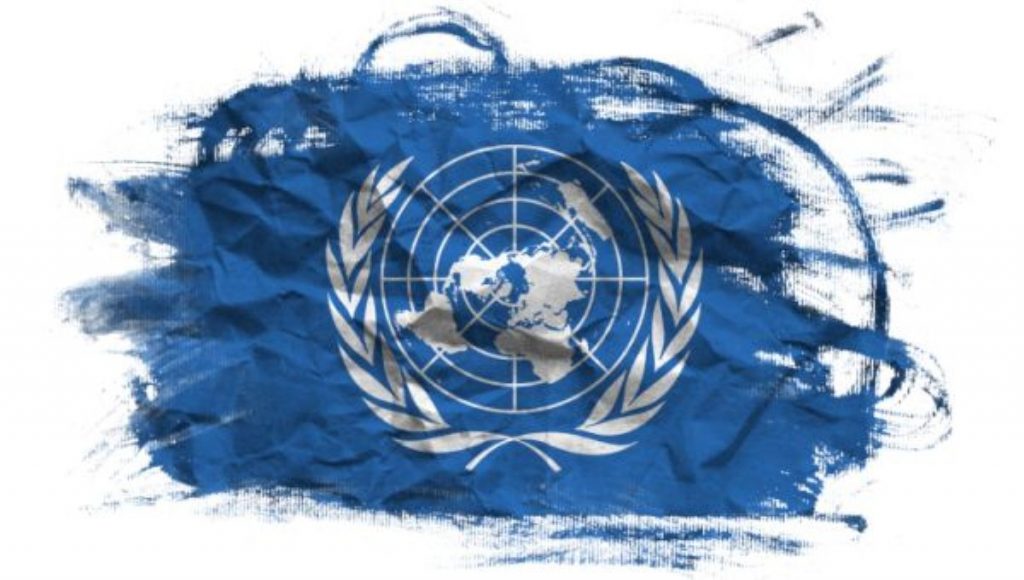Brave New World: Even the UN is open to drug decriminalisation
The body set up to enforce the world's drugs laws has admitted decriminalisation is an "alternative" to prohibition. The story is unlikely to garner many headlines but this is brave new world territory. It's the global equivalent of a town sheriff telling his officers not to put people in jail for taking drugs anymore.
The funny thing is, it happened ages ago and we didn't even notice.
It's in the 2007 report of the UN's International Narcotics Control Board (INCB), a deeply reactionary and aggressive body which polices nation states' obedience to the 1961 Single Convention banning recreational drugs. Transform's Danny Kushlick was going through it the other day when he noticed something remarkable. It says there is no need to send anyone to jail for the "possession, purchase or cultivation" of recreational drugs.



Here's the quote in full, from section B18:
"The conventions differentiate sharply between offences related to drug trafficking and offences related to personal use of illicit drugs and between offences committed by drug abusers and those committed by others.
"Under the 1988 Convention, drug abusers who commit offences may be required to undergo treatment, education, aftercare, rehabilitation or social reintegration, in addition to being convicted or punished, providing that the facts and circumstances surrounding the commission of the offence indicate it to be an offence of a minor nature.
"However, with offences involving the possession, purchase or cultivation of illicit drugs for the offender’s personal use, the measures can be applied as complete alternatives to conviction and punishment, and none of the convention obligations referred to in paragraphs 15-17 above apply to such offences.
"As such, the conventions recognize that, to be truly effective, a State’s response to offences by drug abusers must address both the offences and the abuse of drugs (the underlying cause)."
As Kushlick wrote to me:
"It's weird on two fronts:
"1) That they said it and
"2) That no one had noticed it before
"I feel a bit like I walked through the looking glass…"
It's important to note where the board stops. It is not supportive of legalisation. In fact when Uruguay legalised cannabis, it bullied it with a statement warning about the impact on the country's "public health and well being".
It added, with a trace of malevolence:
"INCB looks forward to maintaining an ongoing dialogue with all countries, including those where such misguided initiatives are being pursued, with a view to ensuring the full implementation of the convention and protecting public health."

Bu the fact that this organisation is open to decriminalisation is an astonishing benchmark for the drug reform movement. Apparently, even the most die-hard prohibitionists are starting to recognise the evidence of decades of failure. As Kushlick said: "UK politicians must follow the numerous countries that have decriminalised, to vastly greater success, rather than those that continue to criminalise users and small-scale growers."
Fittingly, the comment has been discovered just after the UN's leading health agency, the World Health Organisation (WHO), effectively called on countries to end the criminalisation of narcotics. The WHO has worked hand-in hand-with the INCB to aggressively push for the blanket ban on recreational drugs on the world stage.
Now, after countless deaths and ruined lives, it has changed its tune.
A report earlier this month on HIV among vulnerable people – like gay men, drug injectors, prisoners and sex workers – suggested countries end the criminalisation of injection and certainly stop sending people to jail for it.
"Countries should work toward developing policies and laws that decriminalise injection and other use of drugs and, thereby, reduce incarceration," it said.
It also called for countries to decriminalise programmes which provide clean needles and syringes and encouraged opiate substitution treatment for people who are dependant. Finally, it said countries should ban compulsory treatment for people who use and/or inject drugs.
The recommendations were in relation to HIV and drug injection, but you can see how the priority is being placed on public health rather than criminal justice. This is the balance of priorities which drug reform advocates have been demanding for decades: a focus on saving life rather than punishing it.
The ramifications of that advice go well beyond injection. It's unthinkable that someone offering that advice would suggest sending a cannabis smoker to jail, for instance.
With intellectual changes of this magnitude taking place at a global level, there's a growing sense that we're approaching critical mass. Soon even the most studiously ignorant national government – like ours, for instance – will need to take note.
It's a brave new world. And we've been in it since 2007, apparently.









